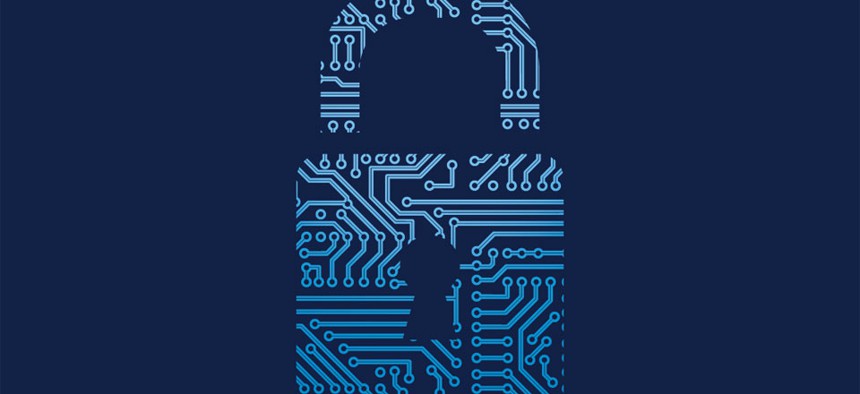Is This the Year Cybersecurity Awareness Sinks In?

bygermina/Shutterstock.com
As October marks Cybersecurity Awareness Month, Nextgov will explore the various facets of the cyberthreat.
We live in a dangerous world. Amid unrest in growing parts of the physical world, the threat landscape has long since expanded into the virtual sphere -- where boundaries don't exist and laws that govern warfare play catch-up.
The White House has declared cyber threats “one of the gravest national security dangers” the nation faces because of their potential damaging effect on critical infrastructure and the overall economy.
The recent spate of hackings against major U.S. retailers and banks has raised the general public’s awareness of a threat federal officials have long warned of.
But it’s one still too few citizens are taking heed of, according to many officials.
“The Internet is the most dangerous parking lot imaginable,” FBI Director James Comey said in an interview with “60 Minutes” on Sunday. “But if you were crossing a mall parking lot late at night, your entire sense of danger would be heightened. You would stand straight. You'd walk quickly. You'd know where you were going. You would look for light. Folks are wandering around that proverbial parking lot of the Internet all day long, without giving it a thought to whose attachments they're opening, what sites they're visiting. And that makes it easy for the bad guys."
Against the backdrop of leaks from the National Security Agency appearing to show a massive surveillance apparatus, however, the conversation among some privacy advocates has shifted.
Conspiracies theories aside and whatever your stance is on Edward Snowden, we now know more than ever about the government’s reach into our lives through what we once thought were private communications.
So what happens, we wonder, when the government itself is the apparent hacker?
As October marks Cybersecurity Awareness Month, Nextgov will be looking at that quandary and other facets of the cyberthreat. We’ll explore how the government plans to correct the long-running dearth of skilled cybersecurity professionals and how that lack could compromise national security.
With an ever-mobile workforce, how is the government poised to handle potential cyberthreats from smart devices both on and off the agency network? It’s clear the Internet of Everything -- as the proliferation of connected devices is commonly known -- means agency cyber gatekeepers will need to exercise “Monitoring of Everything.” But are they ready for that?
We’ll also look at what the rest of the world is doing to raise awareness of the cyberthreat, and how foreign agencies and governments are collaborating to nab hackers that cross national boundaries, protect sensitive data from leaks and lock down their systems.
(Image via bygermina/Shutterstock.com)
NEXT STORY: HP splits, CBP floats and FISMA scores






